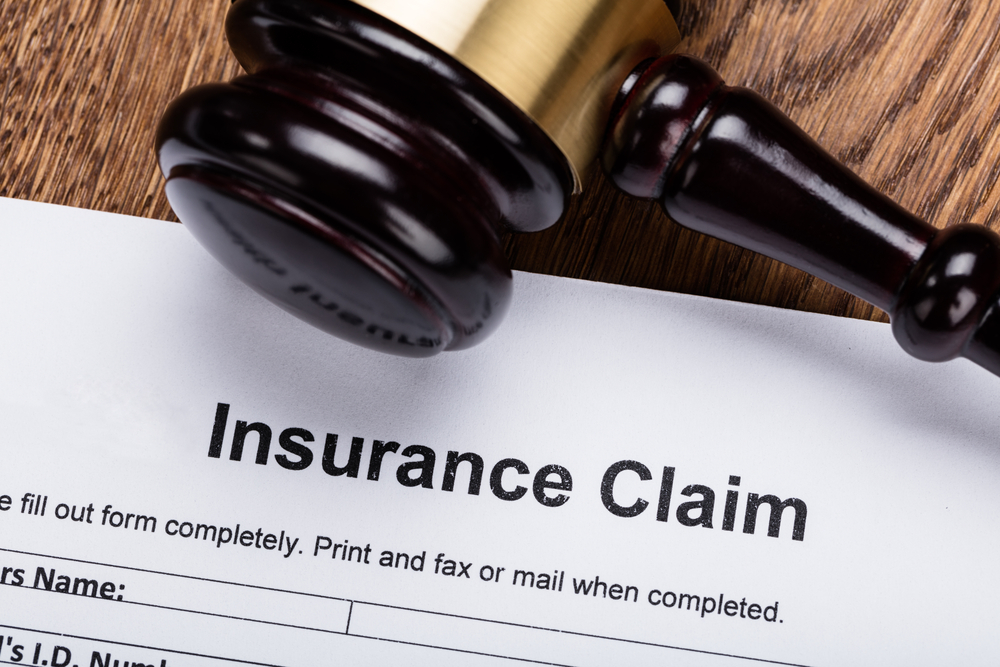 (281) 587-1111
(281) 587-1111  (281) 587-1111
(281) 587-1111 
Most people do not understand that interactions with an insurance adjuster on a personal injury claim can be stressful and certainly not fun. Even after the insurance company has stipulated liability or “accepted liability,” the negotiation begins once the subject of money comes up.
If you are handling your case yourself, you will likely have to deal with insurance adjuster tactics like a lowball insurance settlement offer. Adjusters are trained in techniques designed to reduce the amount they must pay on a personal injury case.
This article highlights the lowball tactic and other tricks and gives options on responding that may benefit your case. And how to negotiate a settlement with an insurance claims adjuster.

A lowball settlement offer is an offer that is clearly outside the reasonable value of your claim. In personal injury cases, adjusters use the lowball settlement offer as a technique to lower your expectations of what your claim is worth.
Frequently, personal injury victims choose to deal with an adjuster without the help of a local attorney. The process is harder for those who represent themselves because they lack the leverage of a jury, and most are not trained in negotiation. Here are a few tips for negotiating your claim with an adjuster.
There is an old saying, “you get more with sugar than with salt,” which applies to dealing with the adverse insurance adjuster. Getting mad or confrontational does not serve your purpose and often cements the adjuster in the lowball offer.
Being angry at the adjuster will not help your settlement negotiations and can hurt you.
Do not fall for the tactic and remain calm and polite when talking with the adjuster, even when you are outraged at their lowball offer.
Avoid making threats to the adjuster as they are immune from worrying about threats, particularly those that may not have been well thought out in advance. People trying to handle their personal injury cases on their own lack the leverage to negotiate a fair and reasonable settlement because they cannot hold the insurance company accountable.
That is one of the primary reasons most people should hire a personal injury attorney up front and avoid handling the claim themselves.
Expecting an insurance company to deal with you fairly when experienced counsel does not represent you is a mistake.
Nevertheless, here is the best approach for responding to a lowball offer.
We recommend that you respond to lowball offers with questions. Try to find out how the insurance adjuster came up with the offer on your injury case. You can negotiate if you can get the claims adjuster to give specific numbers for such things as medical bills, pain, suffering, lost wages, and other damages.
You may find that the adjuster has not considered all the information or maybe does not have the newest medical expenses or records when responding to you with their offer. By asking questions, you are putting yourself in a position to find discrepancies with their numbers.
Many times, an insurance adjuster will deny a claim even though, from your perspective, the liability is clear. This could be where the other party received a ticket from the police officer at the scene, yet the insurance company denies your claim.
In Texas, third-party insurance companies owe no duty to you in handling your claim. This unfortunate circumstance comes from the pro-insurance politics that consumers must deal with in Texas.
If you have done your homework, you will have documentation of all your injuries and damages. This would include at least the following:
The more facts you present to the adjuster, the better opportunity for you to influence the offer and to obtain a reasonable settlement.
Read our Secrets of Handling Your Own Personal Injury Case!
Consider delaying your response when you are presented with an unreasonably low settlement offer. And saying something like, “That sounds awfully low. Let me think about it,” and then respond later in writing with your counteroffer and reasoning after you have cooled down.
Keep notes of things said by the adjuster. That can give you insight into the adjuster’s thoughts about the case. And often can give you information helpful for winning your case.
Many people unfamiliar with handling personal injury claims think that their initial offer or counteroffer should be as high as possible. Unfortunately, suppose your counteroffer is outside of what an experienced personal injury lawyer would consider a reasonable offer or counteroffer.
If your counteroffer is out of the acceptable ballpark, there is little chance that the adjuster will take you seriously and move off their lowball offer. When someone’s expectations are out of the reasonable range, adjusters often shut down the negotiations as a waste of time.
This is usually when you will get the “take it or leave it” response to your proposal. Or the adjuster indicates that is all the money they have allocated for the case.
Insurance companies train their claims handling adjusters and How to negotiate the best settlement for the insurance company. The low offer is pretty much standard operating procedure for most insurance companies; it is not the only tactic they use.
In Texas, courts doing away with the “bad faith” claims is very much like having a five-year-old throw a tantrum and having no ability to put the child in timeout or otherwise punish them. Here are some other common adjuster tactics in car accident claims.
Some insurance companies will seek to drag out the negotiations hoping that the delay will hurt your claim. And, if you wait too long, you may waive your claim entirely due to a statute of limitations. A general rule of thumb is that the longer the delay in settlement, the better it is for the insurance company.
One often-used tactic suggests that this is all the authority the adjuster has to settle the claim. While that may be true, that does not mean that that is all the money the insurance company would ever pay on the claim. It simply means you sometimes need to take steps to get beyond the initial adjuster and into a new adjuster who may take your case more seriously.
Often, this happens automatically when the adjuster changes from pre-litigation to litigation adjuster. However, each insurance company is different in how they structure their claims handling process.
Hire the attorney you have chosen sooner rather than later. If you wait until right before the statute of limitations runs, many lawyers will not entertain taking on your case.
Many people do not understand that insurance companies will not treat an unrepresented individual the same as those with an experienced and successful Houston personal injury attorney on their side.
Numerous studies have shown that personal injury victims receive more compensation in their pockets with an attorney doing the work than trying to represent themselves in obtaining the settlement.
Suppose you have had substantial negotiations and don’t know what you are doing. Get a free consultation from a car insurance lawyer near me.
In that case, you may have unknowingly hurt your case by giving a recorded statement to the adjuster or making admissions to deal with them. The sooner you retain competent counsel, the better.
Also, if you delay getting an attorney, important evidence can get away, hurting your claim.
Even if you are determined to represent yourself, taking advantage of a free consultation with a knowledgeable personal injury law firm before you start dealing with the insurance company is a good idea.
First, look for an experienced and successful attorney with a track record in your case type. If you were injured in an accident with a semi-truck, you would want to find a truck accident lawyer with an impeccable reputation.
If you were injured in a construction accident, you would like a lawyer experienced in those claims. Likewise, if you were hurt in a car wreck, seek an experienced auto accident attorney.
Our personal injury law firm offers free consultations to those injured in accidents in Houston, Texas. Feel free to reach out to us to discuss your case. Call (281) 587-1111 or Click here to schedule a conference.
Read some of our great reviews or look at some of our recent results.
6711 Cypress Creek Pkwy, Houston, TX, 77069
Can I Sue My Own Auto Insurance Company in Texas?
Common Adjuster Tactics in Car Wreck Injury Claims
The Likelihood of Your Car Accident Case Going to Court
Secrets of Handling Your Own Personal Injury Case- Revealed!
Secrets of Negotiation- For Personal Injury Victims
Why is the Insurance Company Low Balling Me?
NEED HELP? HAVE QUESTIONS?